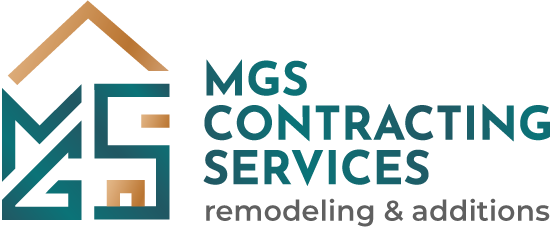Introduction: Why Contractor Relationships Matter
In today’s fast-paced world, businesses and homeowners alike rely on contractors to execute projects efficiently. Whether you’re remodeling your home, expanding your office, or working on a custom build, contractors play a vital role in bringing your vision to life. They are the experts who turn plans into reality, manage critical construction phases, and ensure that projects meet both aesthetic and structural standards.
However, working with contractors isn’t always seamless. Miscommunication, unrealistic expectations, and lack of collaboration can lead to project delays, budget overruns, and unsatisfactory results. These issues often arise not because of incompetence but due to gaps in understanding, unclear roles, or inefficient project management.
At MGS Contracting Services, we believe that strong contractor relationships are the foundation of successful projects. A well-managed contractor partnership doesn’t just ensure that deadlines are met—it enhances the quality of work, promotes innovation, and reduces project-related stress. That’s why we’re sharing 6 Secret Contractor Tips that will transform the way you work with professionals.
From setting expectations to leveraging contractor expertise, this guide covers everything you need to know to improve your working relationship with contractors. We’ll discuss key areas such as budgeting, project timelines, effective communication strategies, do’s and don’ts, expert design tips, financial planning, and proven management techniques. Whether you’re a business owner overseeing commercial construction or a homeowner planning a renovation, these tips will help you maximize efficiency, reduce stress, and achieve high-quality results.
If you want to ensure your projects run more smoothly than ever before, follow these Secret Contractor Tips to unlock the full potential of your contractor relationships. Work Better with Contractors
What Does It Mean to Work Effectively with Contractors?
Before diving into the six secret tips, it’s essential to understand what working effectively with contractors really means. Successful contractor collaboration is not just about hiring skilled professionals; it’s about creating an environment where contractors can deliver their best work while meeting your specific needs.
Key Elements of Effective Contractor Collaboration: Work Better with Contractors
- Clear Communication: Both parties understand the project scope, goals, and expectations, minimizing misunderstandings and delays. Work Better with Contractors
- Defined Roles and Responsibilities: Contractors know exactly what is required of them, reducing confusion and ensuring accountability. Work Better with Contractors
- Trust and Mutual Respect: A professional relationship built on trust fosters productivity, commitment, and quality results. Work Better with Contractors
- Adaptability and Problem-Solving: Challenges are inevitable, but proactive communication helps resolve issues quickly and efficiently. Work Better with Contractors
- Efficient Project Management: Establishing milestones, timelines, and checkpoints keeps the project organized and on track. Work Better with Contractors
Contractors bring valuable expertise to the table, but your approach to managing the relationship can significantly impact the project’s outcome. By following the right strategies, you can avoid common pitfalls and foster a productive partnership. Work Better with Contractors

CREDIT: TREVOR TONDRO
The 6 Secret Contractor Tips for a Smooth Project
1. Set Up an Introductory Meeting: Build Trust from Day One Work Better with Contractors
One of the most overlooked steps in contractor management is the initial face-to-face introduction. Many project managers or homeowners dive straight into the scope of work without first establishing a personal connection. This is a missed opportunity because studies show that people naturally create psychological barriers when dealing with strangers, which can hinder open communication.
Why This Tip Works: Work Better with Contractors
- Establishes Trust and Rapport: Meeting in person helps break the ice, making it easier to discuss project details openly.
- Clarifies Expectations Early: Contractors gain a clear understanding of your vision, goals, and preferences from the outset.
- Encourages Open Communication: When people feel connected, they are more likely to ask questions, seek clarification, and offer valuable feedback.
How to Apply This Tip: Work Better with Contractors
- Schedule an In-Person Meeting: If possible, meet face-to-face to discuss the project scope, timelines, and expectations.
- Use Video Calls When Necessary: If an in-person meeting isn’t feasible, opt for a video call to maintain personal interaction.
- Prepare an Agenda: Outline key points to cover, such as project goals, communication protocols, and potential challenges.
Pro Tip: A brief introduction email or phone call before the meeting can set a positive tone and provide context for the discussion.
2. Discuss Milestones and Checkpoints: Avoid Surprises Work Better with Contractors
Many project delays and misunderstandings occur because timelines are imposed without proper discussion. Instead of simply assigning deadlines, treat them as part of a collaborative planning process.
Why This Tip Works: Work Better with Contractors
- Promotes Realistic Expectations: Contractors can assess their workload and provide honest feedback on feasibility.
- Shared Accountability: When contractors are involved in setting deadlines, they are more likely to take ownership of meeting them.
- Early Issue Identification: Regular checkpoints allow for the early detection of potential problems, minimizing costly delays.
How to Apply This Tip: Work Better with Contractors
- Collaborate on Timeline Planning: Instead of dictating deadlines, ask contractors for input on achievable milestones.
- Establish Clear Checkpoints: Break the project into phases with specific deliverables, ensuring continuous progress monitoring.
- Build in Flexibility: Allow buffer time for unexpected issues, such as weather delays or supply chain disruptions.
Pro Tip: Use project management tools like Asana, Trello, or Microsoft Project to track milestones and monitor progress in real time.
3. Leverage Contractor Expertise: Encourage Creative Input Work Better with Contractors
Contractors are hired for their skills and experience, but many clients unintentionally limit their contributions by micromanaging every detail. While having a clear vision is important, allowing contractors some creative freedom can lead to innovative solutions and superior outcomes.
Why This Tip Works: Work Better with Contractors
- Maximizes Contractor Potential: Contractors often have insights that can improve efficiency, functionality, or aesthetics.
- Fosters a Collaborative Environment: When contractors feel their expertise is valued, they become more engaged and motivated.
- Improves Problem-Solving: Contractors can identify potential issues early and propose effective solutions.
How to Apply This Tip: Work Better with Contractors
- Invite Feedback: Regularly ask contractors for suggestions on improving the project’s design, workflow, or materials.
- Be Open to Alternatives: Even if you have a specific plan in mind, consider contractor recommendations for cost savings or quality enhancements.
- Create a Culture of Collaboration: Position contractors as partners in the project rather than just service providers.
Pro Tip: Hold brainstorming sessions at key project stages to encourage creative problem-solving and innovative ideas.
4. Facilitate Information Exchange: Ensure Everyone Is on the Same Page
Clear, consistent communication is the backbone of any successful project. Contractors need access to comprehensive information to deliver results that meet your expectations. This includes not just task details but also the rationale behind decisions, project goals, and any constraints that may affect their work.
Why This Tip Works: Work Better with Contractors
- Reduces Miscommunication: Providing complete information minimizes misunderstandings and errors.
- Improves Decision-Making: Contractors can make better choices when they understand the project’s broader context.
- Enhances Efficiency: Clear instructions reduce the need for constant clarification, saving time and resources.
How to Apply This Tip:
- Document Everything: Provide detailed project briefs, drawings, specifications, and timelines.
- Establish Communication Channels: Use email, project management software, and regular meetings to keep information flowing.
- Encourage Questions: Create an environment where contractors feel comfortable asking for clarification when needed.
Pro Tip: Maintain a centralized document repository where all project-related information is easily accessible to contractors and stakeholders.
5. Regularly Review and Adjust Progress: Keep Projects on Track
Waiting until the project is complete to review the work can lead to costly revisions and dissatisfaction. Regular progress reviews allow you to provide feedback, make adjustments, and ensure the project is moving in the right direction.
Why This Tip Works:
- Identifies Issues Early: Catching mistakes early prevents them from escalating into larger problems.
- Ensures Continuous Alignment: Regular check-ins keep everyone focused on the project’s goals and expectations.
- Improves Quality Control: Ongoing feedback helps maintain high standards throughout the project.
How to Apply This Tip:
- Schedule Regular Check-Ins: Hold weekly or bi-weekly meetings to discuss progress, challenges, and next steps.
- Conduct Site Visits: For construction projects, periodic site visits help you see the work firsthand and address concerns immediately.
- Provide Constructive Feedback: Focus on solutions rather than criticism to maintain a positive working relationship.
Pro Tip: Use a project checklist to track completed tasks and ensure all project requirements are being met.
6. Focus on Solutions, Not Blame: Maintain a Positive Working Relationship
Mistakes are inevitable in any project. The key to successful contractor relationships is how you handle these setbacks. Instead of assigning blame, focus on finding solutions and moving forward.
Why This Tip Works:
- Maintains Professionalism: A solution-oriented approach fosters respect and reduces conflict.
- Builds Stronger Relationships: Contractors are more likely to go the extra mile when they feel supported rather than criticized.
- Promotes Continuous Improvement: Lessons learned from mistakes can improve future projects.
How to Apply This Tip:
- Address Issues Promptly: Don’t let problems fester. Discuss them as soon as they arise to find quick resolutions.
- Use Constructive Language: Frame feedback in terms of solutions, such as “How can we fix this?” instead of “Who caused this?”
- Document Lessons Learned: Keep a record of challenges and how they were resolved to inform future projects.
Pro Tip: Create a project debrief at the end to review what went well, what could be improved, and how to apply those lessons moving forward.
Budgeting for Contractor Projects
Budgeting is a critical component of project planning. Understanding the potential costs involved helps you allocate resources effectively and avoid financial surprises.
Estimated Costs for Common Contractor Projects:
| Project Type | Estimated Cost Range |
| Kitchen Remodel | $10,000 – $50,000 |
| Bathroom Remodel | $5,000 – $25,000 |
| Basement Finishing | $15,000 – $40,000 |
| Flooring Upgrade | $3,000 – $15,000 |
| Painting & Drywall | $2,000 – $8,000 |
| Roof Replacement | $7,000 – $20,000 |
| Window Replacement | $4,000 – $15,000 |
Tips for Effective Budgeting:
- Get Multiple Quotes: Compare estimates from different contractors to ensure competitive pricing.
- Include a Contingency Fund: Allocate 10-20% of your budget for unexpected expenses.
- Review Payment Terms: Understand the payment schedule and any upfront costs before signing a contract.
Pro Tip: Always ask contractors if they offer discounts for off-season projects or bulk work to maximize savings.
Key Takeaways: Summary of Secret Contractor Tips
- Set Up an Introductory Meeting – Build trust and establish expectations from the start.
- Discuss Milestones and Checkpoints – Collaborate on realistic timelines and ensure accountability.
- Leverage Contractor Expertise – Encourage creative input to enhance project outcomes.
- Facilitate Information Exchange – Provide comprehensive information for clarity and efficiency.
- Regularly Review and Adjust Progress – Conduct regular check-ins to maintain project alignment.
- Focus on Solutions, Not Blame – Address issues constructively to maintain strong working relationships.
By implementing these strategies, you’ll create a more productive, efficient, and stress-free environment for your projects. For expert contracting services tailored to your needs, contact MGS Contracting Services today. We’re here to help you achieve exceptional results, every step of the way.
